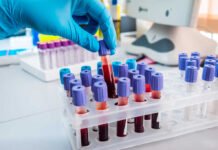
Colon cancer is one of the most widespread forms of cancer that can affect both men and women. Unfortunately, it’s often hard to detect in the early stages unless you know some of the symptoms to look out for. In fact, most people with colon cancer don’t even know they have it until it reaches Stage 3 or 4. Identifying cancer as early as possible influences treatment options and outcomes. Let’s go over some common colon cancer symptoms you should never ignore.
Changes in Bowel Habits
One of the top colon cancer symptoms that shouldn’t be ignored is when you experience changes in your bowel habits. A change in bowel activity such as constipation, diarrhea, or having fewer bowel movements could be an indication that your body is not functioning properly. If a change to your bowels lasts longer than two weeks, you should see your doctor.
Rectum Bleeding
Bleeding from your rectum may be a sign of colon cancer. Rectal bleeding is often benign, but sometimes it’s due to polyps, hemorrhoids, or colorectal cancer. It’s important to have these signs checked out by a physician because colorectal cancer can spread rapidly. The earlier you identify it, the better chance for effective treatment.
Bloody Stools
One of the most common and potentially fatal colon cancer symptoms is blood in your stool. If you’re experiencing blood in your stool, consult a physician as soon as possible to find out if you might have colon cancer. Don’t brush off blood in your stool because it could eventually progress into something much more severe by neglecting it.
Cramping and Abdominal Pain
Abdominal pain is often a sign of colorectal cancer and can result from other conditions. However, cramping or a feeling that your abdomen is pulling in should prompt immediate medical attention.
No Relief After Bowel Movements
Some cancers can present themselves by causing constipation, meaning you may have to strain more than usual during bowel movements. If you’re not experiencing any relief after going to the bathroom or your stools have changed color or consistency from normal, it could be a sign of colon cancer.
You should be aware that these symptoms don’t always mean you have cancer; they are simply warning signs that should be investigated further. If you experience any of these symptoms, consult your doctor for proper diagnosis and treatment.


















